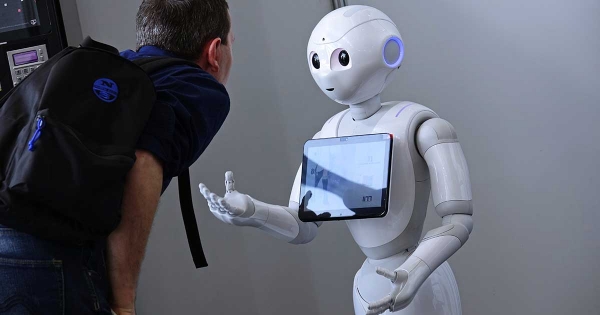Exploring the World of Machine Intelligence
Machine intelligence, a term often used interchangeably with artificial intelligence (AI), represents a leap forward in the ability of machines to perform tasks that typically require human intelligence. From language translation to autonomous driving, machine intelligence is transforming industries and redefining the possibilities of technology. This article delves into the intricacies of machine intelligence, its applications, and its future potential.

The Essence of Machine Intelligence
Understanding the Fundamentals
Machine intelligence encompasses a range of technologies that enable machines to learn, reason, and adapt. At its core, it involves the development of algorithms that can process vast amounts of data, recognize patterns, and make decisions. Machine learning (ML) and deep learning (DL) are subsets of AI that play crucial roles in these processes. ML focuses on developing algorithms that allow machines to improve their performance over time, while DL uses neural networks to simulate the functioning of the human brain, enabling more complex tasks to be undertaken.
Applications Across Various Domains
Healthcare: Revolutionizing Medical Diagnostics
In healthcare, machine intelligence is being harnessed to revolutionize diagnostics and treatment. AI algorithms can analyze medical images with remarkable accuracy, identifying conditions such as tumors and fractures that may be missed by the human eye. Additionally, predictive analytics driven by machine intelligence can forecast disease outbreaks and patient outcomes, enabling proactive healthcare measures.
Finance: Enhancing Fraud Detection and Trading
The finance sector is leveraging machine intelligence to enhance security and efficiency. AI-driven systems can detect fraudulent transactions by analyzing spending patterns and flagging anomalies in real-time. Furthermore, algorithmic trading, powered by machine intelligence, can process market data and execute trades at speeds and accuracies unattainable by human traders, optimizing investment strategies.
Autonomous Vehicles: Redefining Transportation
Autonomous vehicles are perhaps one of the most visible applications of machine intelligence. These vehicles utilize a combination of sensors, machine learning algorithms, and real-time data processing to navigate complex environments without human intervention. Companies like Tesla, Waymo, and Uber are at the forefront of developing self-driving technologies that promise to reduce accidents and transform urban mobility.
Natural Language Processing: Bridging Communication Gaps
Natural Language Processing (NLP), a branch of AI, focuses on the interaction between computers and human language. Machine intelligence in NLP enables applications such as real-time language translation, sentiment analysis, and chatbots. These technologies are bridging communication gaps and enhancing customer service across various industries.
Challenges and Ethical Considerations
Data Privacy and Security
While the benefits of machine intelligence are profound, they are accompanied by significant challenges, particularly in the realm of data privacy and security. The effectiveness of AI systems depends on vast amounts of data, raising concerns about how this data is collected, stored, and used. Ensuring that AI technologies comply with privacy regulations and ethical standards is paramount to gaining public trust.
Bias and Fairness
Another critical issue is the potential for bias in machine intelligence systems. AI algorithms are only as good as the data they are trained on. If this data contains biases, the AI system can perpetuate or even exacerbate these biases. Addressing fairness in AI involves developing techniques to identify and mitigate bias, ensuring that machine intelligence serves all segments of society equitably.
The Future of Machine Intelligence
Continued Evolution and Integration
The future of machine intelligence is one of continued evolution and integration into everyday life. As algorithms become more sophisticated and data processing capabilities expand, AI systems will become even more adept at performing complex tasks. We can anticipate advancements in fields such as personalized medicine, where machine intelligence could tailor treatments to individual genetic profiles, and in environmental conservation, where AI could optimize resource management and combat climate change.
Human-Machine Collaboration
Another promising aspect of the future is the potential for enhanced human-machine collaboration. Rather than replacing humans, machine intelligence can augment human capabilities, allowing us to solve problems that were previously insurmountable. This symbiotic relationship will likely lead to innovations that we can scarcely imagine today.
Conclusion
Machine intelligence is at the forefront of technological innovation, offering transformative solutions across various sectors. While challenges such as data privacy and bias need to be addressed, the potential benefits are immense. As we continue to explore and refine these technologies, machine intelligence will undoubtedly play an increasingly integral role in shaping our future, driving progress, and improving our quality of life.




